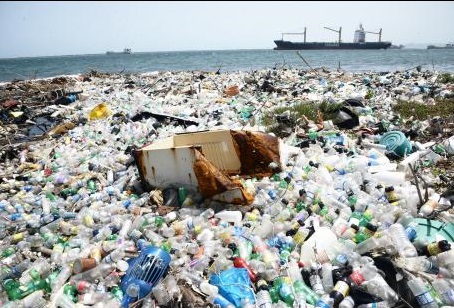Manufacturers weigh in on biodegradable debate – Manufacturers biodegradable debate - Arhive
Manufacturers biodegradable debate Manufacturers biodegradable debate Manufacturers biodegradable debate Manufacturers biodegradable debate Manufacturers biodegradable debate Manufacturers biodegradable debate
Manufacturers weigh in on biodegradable debate
 Before taking a decision on the banning of biodegradable bags, Government needs to first educate itself on the issue and invest in a public awareness campaign along the same vein in order to get the nation at large to understand the full implications of any such ban. This is the view of at least two local manufacturers of single-use plastic bags and other food-packaging material such as Styrofoam.
Before taking a decision on the banning of biodegradable bags, Government needs to first educate itself on the issue and invest in a public awareness campaign along the same vein in order to get the nation at large to understand the full implications of any such ban. This is the view of at least two local manufacturers of single-use plastic bags and other food-packaging material such as Styrofoam.
“It is not a matter of just simply banning bags, which is the impression that was being put out there. Ban the bags and ban the bags because it makes no sense. What you need to do is to ensure that the thing is biodegradable and that when people put on the bag that it is biodegradable that it means what it says. What does degradable mean? Degrade in 1,000 years?” were some of the points raised by Hugh Gray, chairman and chief executive officer of Agri and Industrial Packaging.
He was reacting to the news that the Government is looking into banning plastic bags as a means of reducing the volume of garbage that ends up on the streets, on the beaches, and all over the place, creating eyesores and health risks in most town capitals.
The manufacture of flexible packaging is the core business for this company, which has been in operation for more than 30 years.
“We make bags for almost every sector of the society, any category that you can think of,” Gray told The Gleaner. “No difficulty at all,” he said when asked about the company’s ability to transition to biodegradable packing only, should that become law any time soon.
Education on biodegradable packaging key
Like Hugh Gray, Nigel Hoyow, director of Flexi Pak, has also invested in research into the suitability of biodegradable packaging for the local market, and both companies are up to speed in terms of the far-reaching implications for their businesses as well as the environment, if the law comes into effect. Both men have reservations about the State’s capability to implement such a ban with any degree of effectiveness at this time.
“It’s not a magic wand that you raise, and yes, it will stop flooding immediately if the bags are biodegradable. Biodegradable stuff can be engineered to what the customer wants. So if I need my stuff to be in the warehouse for two years for whatever reason, then the biodegradable element can be engineered to give you a two-year lifespan,” he told The Gleaner. “We don’t have any parameters to work it, and there is much more to it than meets the eye.”
Gray agreed with the need for much more public awareness on the issue.
“This whole thing of dealing with recycling is where the Government needs to go – the education of the people to say the damage that is being done is because of how we really handle the products. Does Bureau of Standard Jamaica or any of the entities that would be set up to monitor these things have the necessary wherewithal to ensure that people don’t just write on the product that it is biodegradable? Can they really check it to see if what they are saying is true?”
Hoyow underscored the importance of educating everyone on the debate about biodegradable packaging.
“Nobody, not even me at this stage, understands the true ramifications of the environment after you biodegrade the stuff. Because you fragment it and get rid of it into little fragments of dust, which is supposed to end up as biomass, which is basically dust in layman terms, but the dust is not a compostable dust, so it will still be there in a polymer form – not dirt as we know it, earth.”
